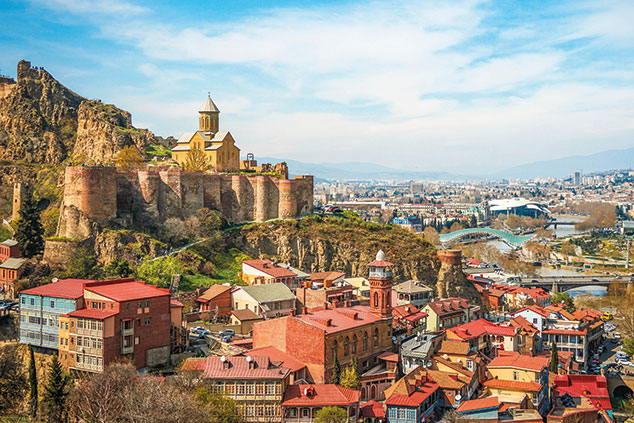
One of the great virtues of the London stockmarket is that there’s a healthy number of funds to appeal to investors looking for the next frontier. One of the lower-profile examples is Georgia, a destination that probably isn’t on the radar for many people, but represents an interesting prospect for the brave investor.
Solid fundamentals
Georgia is a tiny state nestled on the western edge of the Caucasus mountain range. It has a population of just 3.7 million, yet boasts a number of advantages. Its government is trying to stay friendly with the West as well as with Russia – although every once in a while its overbearing northern neighbour throws a tantrum and threatens exports.
National markets are steadily opening up to international competition (Turkey is one key trading partner) and Georgia is keen to position itself as a transit point in trade between Central Asia and Europe. Its lack of commodity wealth is also probably something of a positive, making local businesses work harder for their profits.
The economy has been growing at a fairly steady 4% to 6% clip since 2017 with inflation on target to stay below 3%, and a rapidly improving trade deficit. National finances look stable with interest rates at 6.5% and central-bank foreign-exchange reserves steadily growing.
A promising fund
Bank of Georgia, a local bank, has been listed on the main segment of the London Stock Exchange since the spring of 2012. Back in 2018 it decided to de-merge into two separate businesses: Bank of Georgia (LSE: BGEO), the banking business; and Georgia Capital (LSE: CGEO), the investment fund business.
At the time I thought that this investment arm was interesting, but timing wasn’t ideal and the demerger took place at net asset value (NAV), which I thought might be a bit rich. Rows then developed with Russia, which helped knock sentiment and since the demerger the shares have drifted ever lower. At the current share price of around £10 a share, the discount to NAV looks to be about 30%, which strikes me as better.
In simple terms, Georgia Capital is a hybrid fund, containing of two main components. The biggest chunk (60%) consists of substantial holdings in Bank of Georgia (19.9% stake) as well as a 57% stake in Georgia Healthcare (LSE: GHG). These are both performing well. Georgia Healthcare has recently announced a dividend policy, and plans to pay out 20%-30% of annual profit. Bank of Georgia’s shares are still lowly priced, trading at 1.4 times book value, on a price-to-earnings ratio of around five and a dividend yield of over 10%.
Fast-growing private equity
The other portion of the portfolio is a fast-expanding range of private-equity holdings. Recent investments include an 80% equity interest in Green School, the leading affordable private school, and an 80% interest in Amboli, the second-largest auto-service firm. In March, Georgia Capital’s drinks operation acquired the brand name and commercial assets of Kazbegi, the country’s oldest beer brand, for $3.65m (£3m). Meanwhile, the renewable energy business has commissioned the 30MW first phase of the Mestiachala hydro power plant, with a further 20MW second phase under way.
This frenetic pace of activity shows up in the latest reported quarterly numbers which showed a 7.2% return in local currency terms for the first quarter of this year (3.5% in sterling terms) – comprised of a 12.1% total return in local currency from the listed portfolio companies and a 2.1% total return from the private portfolio companies. Overall, I think Georgia Capital now looks like a good bet as long as Georgia can keep on good terms with Russia.